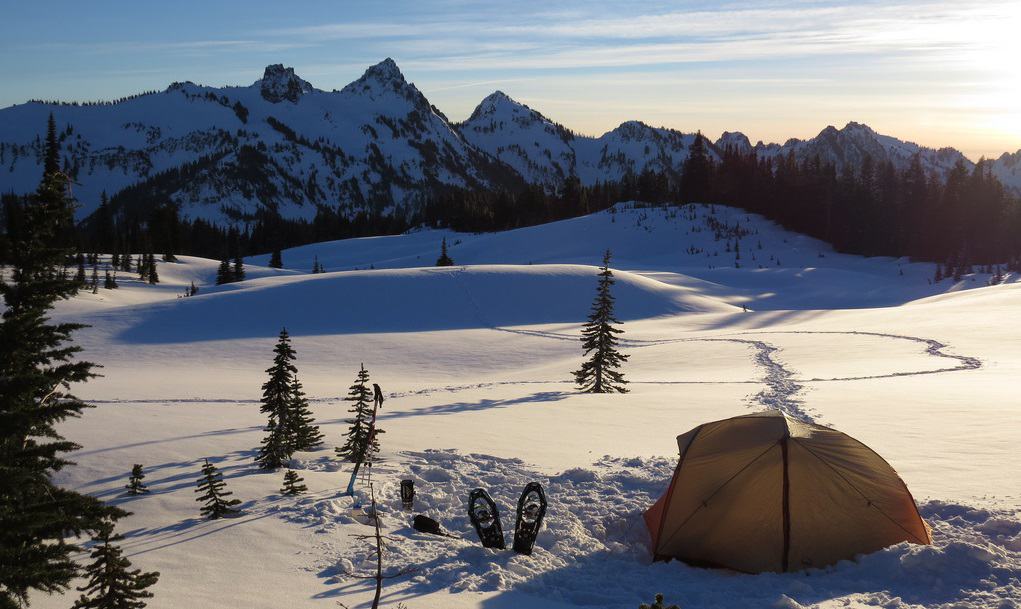Winter camping has its perks. There are fewer bugs and crowds while you experience the beauty and peacefulness of a pristine winter wonderland. But, if you're not prepared, it can also be cold and challenging. To set yourself up for a successful winter campout, you'll want to build on your knowledge of winter camping while adjusting for the additional challenges of cold temperatures, snowy landscapes and unpredictable weather.
Here are the main things to think about when camping in winter:
- Tips for making camp in the snow: Pick a spot that's sheltered from the wind and free of avalanche danger, then prep your tent site by packing down the snow.
- Stay hydrated and eat lots of calories: Proper nutrition and hydration will help you stay warm. Make hot, nutritious breakfasts and dinners and enjoy quick snacks and lunches. Be sure to hydrate throughout the day.
- Use gear that’s right for winter camping: You'll need a sturdy tent, a warm sleeping bag, two sleeping pads and a stove suitable for cold temperatures.
- Bring warmer clothing: Midweight base layers, fleece pants, a puffy coat, and a waterproof jacket and pants are standard. Don't forget accessories like warm socks, a hat, gloves and sunglasses.
- Prevent cold injuries: Frostbite and hypothermia are legitimate concerns while winter camping. Learning how to avoid them.
- Additional tips: Eating food, filling a bottle with hot water and doing jumping jacks are just a few tips for staying warm on a cold night.

Your body uses a lot of energy when you're trekking through cold, snowy landscapes. It's important to eat and hydrate well before, during and after your activity, so you can keep your energy up and stay warm. Here are some food and water recommendations:
- Enjoy hot and simple meals: A hot meal while winter camping is especially gratifying, but try to keep your meals simple so you're not stuck cleaning lots of dishes in the cold. Consider calorie-dense foods that don't take much time to cook and look for one-pot options. Freeze-dried entrees and breakfast foods are also good choices.
- Take short lunch breaks: For lunch, simple sandwiches or quick-grab snacks and energy foods that provide protein, fat and carbohydrates are good. Try not to stop for long lunch breaks where you cool down. Instead, take short breaks to snack on food, or simply nibble while you’re moving.
- Store food securely: Bears are typically in a deep slumber during wintertime, but there are other critters that will happily snack on your food if you leave it accessible. Stow your food securely in your backpack or hang it from a tree using a stuff sack and rope. Some areas may have regulations for food storage; familiarize yourself with those before leaving home.
- Remember to drink: Stopping to drink water when it's cold out can feel like a major inconvenience, and you may not feel especially thirsty like you do on a hot summer day. To stay properly hydrated, it's important to make yourself sip water regularly throughout the day. At camp, making hot drinks, like herbal tea or hot chocolate, or sipping on soup are good ways to warm up and rehydrate.
- Use bottles: Most winter campers choose to leave their hydration reservoirs at home and take water bottles instead (the tubes on reservoirs can easily freeze solid, thereby cutting off your water supply). To keep your water handy, you can use an insulated water bottle cover that attaches to the outside of your pack.

